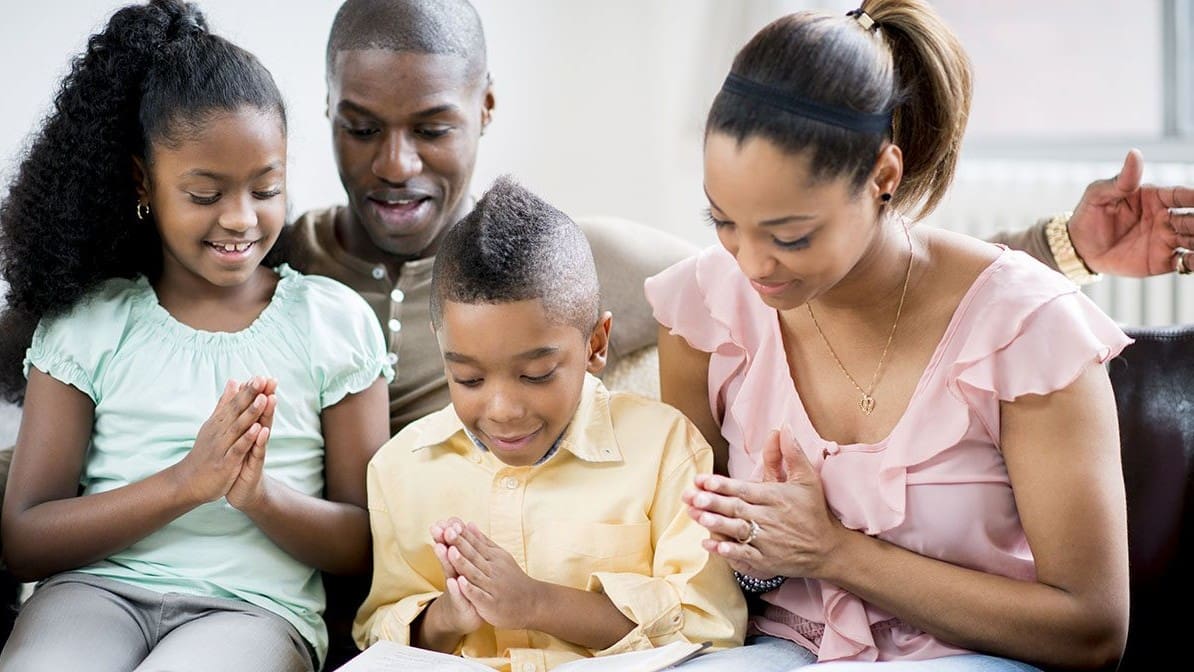
If I Had a Parenting Do Over

Chapter 7
Walk With
“What is the best way to pass on values to our kids?”
It’s one of the most common questions I hear from parents after my workshops. The question comes in many different forms.
“How can we help our kids establish a faith of their own?”
“What are the best ways to mentor our kids and teach them truth?”
“How can I teach my kids values in a world that doesn’t seem to have any?”
Truth is an interesting term. The word is probably on the endangered species list, at least with the definition we once knew. Today’s young people aren’t very concerned about “truth”; they’re more interested in what works for them.
I guess we shouldn’t be surprised, in a world where almost every three-year-old in America can sing every word to the Disney song “Let It Go,” which moralizes testing limits, no right, no wrong, no rules … concepts that make you wonder how much of this our kids are grasping as they belt out those very words.
Don’t worry. I’m not turning fanatical on you. I’m not going to ask you to stop using a certain hairspray because the company supports a cause I don’t agree with. I simply want us to pause and think about what our kids are swallowing from this culture hook, line, and sinker. We’re raising a generation of kids who are learning to make decisions based on a moral code of “what’s right for me.”
Research reveals three-quarters of Millennials (74 percent) agree with the statement “Whatever is right for your life or works best for you is the only truth you can know,” compared to only 38 percent of the generation of Elders.¹
How’s that for a rapid change in morality over generations?
Please understand. This isn’t meant as a criticism of “today’s kids.” It’s actually a criticism of us—the adults who have raised them this way. One way or another we have allowed our kids to adopt a very convenient morality: Do what feels right in the moment. Go with your gut. No one can tell you what’s right for you.
And how do you think this will work out for most?
How do family, moral, or even biblical values fit into this kind of worldview?
What will this kind of morality look like day to day?
For most young people it means adopting the moral code of the majority. In other words:
- If everyone else sleeps with someone on the second date, that’s the standard.
- If everyone else says a little bit of drugs can’t hurt anyone, then why not?
- If a lie will get you out of trouble, then don’t hesitate.
- Truth or character doesn’t matter.
- Living for the moment is what matters.
I saw this mode of thinking played out to the extreme when my wife and I counseled a nineteen-year-old girl who was having a tough time staying in school or keeping a job. This Millennial had been raised in a good home, gone to church her entire life, and even served as a student leader in her youth ministry, going on mission trips and serving the poor. Once in college, she started drinking, stopped going to class, and eventually became more interested in partying than finishing anything she started.
Her aunt took her in and gave her very few rules: Work or go to school, don’t come home drunk, and don’t have anyone over while we’re away. The young girl didn’t keep any of these rules. Not one.
Lori and I chatted with this young lady one afternoon after she got caught having a party at her aunt’s house when she was away. She defended herself. “Her rules are impossible.”
“Well,” I offered, “when you violate the trust of the people who love you, you’re not only hurting your relationship with them; you’re possibly evicting yourself from the only place in town with free room and board.”
She dug her feet in and argued, “They just don’t understand. …”
Her moral code was all about her at the expense of everyone around her.
Sadly, this young woman’s philosophy of “do whatever works for you” was slowly catching up with her. The consequences of her bad behaviors were now enslaving her. She was jobless, homeless, and friendless. Selfishness has its drawbacks. Truth has a way of revealing itself … eventually.
So let me ask the question again: How can we raise moral kids in an immoral world?
The youth ministry world has been asking a similar question over the last decade: How can we develop a faith in young people that lasts beyond high school?
It’s the question youth leaders have been wrestling with for years having watched countless young people walk away from their faith after high school. In reality, many of them exit the church way before that. Look at any church youth group. Upperclassmen are the minority. Sure, jobs and college apps demand a lot from juniors and seniors, but does that account for such a drastic decrease?
I speak to young people at churches, camps, and conferences across the world, and I see the same thing almost everywhere I go. The older teens get, the less likely you’ll find them in church.
What happened?
What made these kids lose interest in the very faith they were raised believing?
Guess what—this isn’t anything new. In fact, this is an old problem. A four-thousand-year-old problem to be exact.
In Deuteronomy 6, Moses has an important talk with God’s people (I told you we would dive into this passage). As he addressed them, he pleaded with them not to forget all God had done for them. He specifically asked them to commit wholeheartedly to God’s commands (verse 6).
But he didn’t stop there:
Impress them on your children. Talk about them when you sit at home and when you walk along the road, when you lie down and when you get up. Tie them as symbols on your hands and bind them on your foreheads. Write them on the doorframes of your houses and on your gates. (verses 7-9)
Let’s be honest. This is a tough Bible passage for most of us to take seriously. Think about it. This instruction goes way beyond just dragging our kids to a Sunday church service. It requires more than just dropping our kids off at youth group once a week!
Moses tells these parents to talk with their kids about God’s story while sitting at home, walking along the road, getting up, and lying down. In fact, he asks us to follow this instruction in everything we do (the true ramifications of his “tie them as symbols on your hands”) and in everything we think about (“bind them on your foreheads”). That might make us think twice about some of the TV we watch.
Moses basically warned God’s people, “Don’t let your kids forget what the Lord has done for you!” He even spelled out what this might look like for most families day to day (and they weren’t even distracted by their mobile devices back then).
The question is, did they do it?
Sadly, if you flip ahead in your Bible just a few books, you’ll find the answer in the book of Judges. That generation of parents died off and the generation of kids grew up: “After that generation died, another generation grew up who did not acknowledge the Lord or remember the mighty things he had done for Israel” (2:10 NLT).
They didn’t remember what God had done for them. They didn’t come to faith on their own.
Why?
The parents didn’t commit wholeheartedly to God’s commands and impress them on their children at home, walking along the road, getting up in the morning, and going to bed at night. …
And four thousand years later, God’s people are the same.
Is this the kind of legacy you want to leave?
How can we avoid this tragic forfeiture of our call as parents?
Walking With
The solution lies in the “walking with.”
It’s the Christmas message when you think about it. God came down and became man. Jesus is God incarnate. We sing about it every December. His name is Emmanuel, which means what?
God is with us.
Not … God is in the other room watching TV.
God is with us.
Jesus lived this out while He was on earth. He didn’t sit on a pedestal somewhere; He walked elbow to elbow with the people, sitting with them, talking with them, eating with them, touching them, and interacting in real life. The more people hung out with Him, the more they gleaned from Him because He actually took the time to notice them and meet their needs. Jesus even selected a group of twelve disciples who would carry on His ministry after He left. He didn’t sit these guys down in a classroom and make them study. He walked with them for three years, teaching them as He went.
He walked with them.
The more I research parenting, the more I hear experts communicate the effectiveness of walking with our kids. (Remember the “mentor parents” in the previous chapter?) Not posting a list of rules. Not releasing them to do whatever they want. Walking with them.
The more I ask parents about their successes and failures, the more they express the effectiveness of walking with their kids. And the more I look back on my own parenting, the more I realize that the impact of what I said to them was miniscule in comparison to what I did with them.
With is always far more effective than to.
If I had to do it all over again, I’d focus on the with.
So how can we live this out? How can we walk with our kids?
I don’t have a secret recipe, and I don’t have a few simple tasks we can check off each day. What I can offer are three noteworthy observations about what “walking with” actually looks like in the world today. Hopefully these insights will give you ideas for steps you can take in your life, with your family, in your home.
- “Walking with” Begins with Our Faith
Passing on a legacy of faith begins with our own faith.
I wish I could give you a shortcut, but I can’t. The fact is, your faith in action is the best teaching tool you’ll ever use. On one hand, this is very daunting, because all of us are imperfect. We think, I’m so messed up, my kids are sure to be messed up. That’s where God’s grace comes in. If you surrender to God and give Him permission to work in your life, He’ll give you a fresh start. Your kids will notice this transformation, and it will give them hope. They, like you, will see that God can take something imperfect and begin changing it for the better.
On the other hand, your faith in action makes your job of walking with your kids on this journey waaaay easier, because your kids will learn much more from your actions than your words. This journey is so much more about leaving a legacy of love and connection than teaching principles.
What did this look like in my life?
You’ve heard me confess many of my mess-ups in the book, from my temper to my shortsightedness. If I may, allow me to share a couple of areas where God worked through me.
My kids heard me say, “Don’t lie. Always keep your word.” But they truly learned the principle when our family kept commitments, time and time again, even when they weren’t fun commitments.
“Why do we have to go?”
“Because we told them we’d be there. And if we tell someone we’ll be there, then we’ll be there. They’ll know they can always count on us.”
My kids heard me say, “Love your neighbor.” But the words truly made an impact when they saw us stocking our car with McDonald’s gift cards and bottles of water so we could give them to homeless people on the side of the road every time we encountered them, when we tipped restaurant servers extra well, when we brought meals to people in need.
Our actions spoke louder than words every time.
You can teach what you know, but you can only reproduce who you truly are.
As you walk with your kids on this journey, you’ll notice the road is littered with distractions, which is why we need to teach our kids how to navigate obstacles.
2. “Walking with” Means Teaching Navigation Skills
The world has always offered numerous alluring rabbit trails diverting us from the wise path. Today these distractions are even more abundant because the device in our pocket provides us with anything and everything. That’s why it’s even more essential for today’s parents to walk with their kids and teach them to navigate around these enticements.
I’ve highlighted some of these influences in past chapters, even giving you a few hints about navigating the world of social media and technology with your kids. I promised you more, so let’s get even more specific and look at some examples of ways parents can teach their kids to steer away from these distractions.
Notice I didn’t say parents should do the steering for their kids.
We need to teach our kids how to steer, incrementally allowing them more opportunities to do their own navigating as they approach independence.
What does this actually look like?
It doesn’t mean becoming a “drill sergeant” parent obsessed with boundaries; it simply means providing helpful guardrails to keep our kids on course.
Let me point to the recommendations of two experts. The first comes from Pediatrics, the journal of the American Academy of Pediatrics (AAP). Here are just a few guidelines put forth in the article for today’s families:
- Limit the amount of total entertainment screen time to less than one to two hours per day.
- Keep the TV set and Internet-connected electronic devices out of the child’s bedroom.
- Monitor the media children are using and accessing, including any websites they are visiting and social media sites they may be using.
- Co-view shows, movies, and videos with children and teenagers, and use this practice as a way of discussing important family values.
- Model active parenting by establishing a family home use plan for all media. As part of the plan, enforce a mealtime and bedtime “curfew” for media devices, including cell phones. Establish reasonable but firm rules about cell phones, texting, Internet, and social media use.²
The AAP isn’t alone in its recommendations to parents. Common Sense Media provides “smart strategies” for managing your kids’ media and technology. These strategies include the following:
- Check out your kids’ social sites. Literally ask them to show you where they visit, what they do there, who they talk to, and what they upload.
- Watch them play their favorite games or even play with them.
- Share music. Play music with them and ask them to play you their favorite songs. Take advantage of safety mode features on sites like YouTube where parents can block inappropriate content.
- Take control of your TV. Preview shows, and use the remote to avoid the bad content.
- Research your kids’ apps. Try out the app with your kids.
- Establish a digital code of conduct. Set rules around responsible, respectful usage.³
You might have noticed words like research, check out, and monitor. This means we need to take the time to notice where our kids are spending their time. But both of these experts also used words like play, watch, and try out. This means that much of the “noticing” these experts recommend is done in the form of participating in the entertainment media with our kids, watching shows with them, playing games with them, or browsing the apps they enjoy. The more we take part in their lives, the more opportunities we will have to teach good decision making and pass on our family values.
Note what both of these experts did not tell you to do. They did not say:
- Just get some porn-blocking software, and then you won’t ever have to monitor your kids again.
- Just unplug all the devices, move to Amish Pennsylvania, and teach your kids how to churn butter.
- Just ban all entertainment media until they leave the house; then they can figure it out on their won.
As you can see, parenting is a healthy balance of both bonding and boundaries. The more we notice our kids and make efforts to truly get to know them, the more we’ll know what boundaries are actually helpful and, more importantly, the more we’ll be able to engage in meaningful conversation about the stuff that matters.
It’s pretty cool to see the journal our family pediatrician reads recommending that families play together, watch media together, and talk about important family values … which brings me to my last observation.
3. It All Comes Down to Love
So what is the most important value we need to pass on?
That’s a huge question.
What should our conversations be sure to include while we’re sitting at home, walking along the road, getting up, and lying down?
What is most important?
Sadly, Christians haven’t always aligned themselves with biblical teaching when answering this question. Historically, Christians have done some stupid things “in Jesus’ name.” People have spewed venomous words and hate, supposedly in defense of Christian principles … all while missing the biggest Christian principle.
What is this principle I’m talking about?
It’s hard to miss if you pick up your Bible and read it. It even uses words like “the most important thing” when it talks about it.
Love.
Love is the most important thing.
It’s all throughout there. Like when the people of Galatia were being misled by a bunch of religious guys who were trying to convince them they needed to adhere to certain rules and practices to be accepted by God. The apostle Paul corrected them and told them that only a true faith in Jesus saved them, not rules. Then he said this: “What is important is faith expressing itself in love” (Galatians 5:6 NLT).
But Paul knew his readers would probably miss this. So he went into even more detail, warning his people against false teachers and pleading that they live out their faith by serving one another in love. Then he said this: “For the whole law can be summed up in this one command: ‘Love your neighbor as yourself’” (Galatians 5:14 NLT).
There it is again. It’s all throughout the Bible. Even in the Old Testament: “I want you to show love, not offer sacrifices” (Hosea 6:6 NLT).
It’s all through the Gospel accounts. Like when the Pharisees were quizzing Jesus and asked Him what was most important:
“Teacher, which is the most important commandment in the law of Moses?”
Jesus replied, “‘You must love the Lord your God with all your heart, all your soul, and all your mind.’ This is the first and greatest commandment. A second is equally important: ‘Love your neighbor as yourself.’ The entire law and all the demands of the prophets are based on these two commandments.” (Matthew 22:36-40 NLT)
Or how about the famous “love chapter” that is read at almost every wedding, the passage that literally starts with Paul saying, “If I had the gift of prophecy, and if I understood all of God’s secret plans and possessed all knowledge, and if I had such faith that I could move mountains, but didn’t love others, I would be nothing” (1 Corinthians 13:2 NLT).
Or from the pen of Peter: “Most important of all, continue to show deep love for each other, for love covers a multitude of sins” (1 Peter 4:8 NLT).
Wow! That’s good to know, Peter, because I’ve got plenty of sins!
Love keeps coming up again and again as most important.
How is it that Christians miss this?
More specifically, if we aren’t teaching our kids love, what are we teaching our kids?
The chief complaint of nonbelievers is that Christians are hateful and hypocritical. Don’t worry, I’m not going to start defending nonbelievers or try to convince you to change sides on issues. I’m just going to ask you, How did believers get this reputation? Why is it that even Gandhi said, “I like your Christ; I do not like your Christians. Your Christians are so unlike your Christ”?4
Perhaps we need to start teaching our kids that love is the most important thing. Or better yet, as I mentioned just a few pages ago, maybe we need to start modeling this truth so our kids learn it as they’re walking with us.
How can we do this?
- Attend a church where Jesus’ teachings are taught and love is lived out.
- Look for opportunities to serve in your community, and let God’s love work through you, giving glory to God, not yourself.
- Be a light in your everyday activities on your own street and in your own neighborhood so others will see your love and maybe even ask you about the source of that love. (1 Peter 3:15-16)
- Take your kids through the Gospels so they can learn Jesus’ teachings firsthand and see how He responded in love to sinners without bending His morality in the process.
- Remember the biblical mandate of love in every decision you make for your family.
- When you mess up (and you will), ask for forgiveness and demonstrate that the relationship is what’s important.
Imagine if all of God’s people were loving others proactively like this. What would this look like in your home?
Your kids don’t need parents who let them do whatever they want.
Your kids don’t need parents who just set a bunch of rules.
Your kids need parents who will walk with them, equipping them for that day when they have to make decisions on their own.
Are you equipping them for that day?
…
Order your copy of If I Had a Parenting Do-Over: 7 Vital Changes I’d Make by Jonathan McKee
Trending Now
Sign up today for your Inspiration Today Daily Newsletter
Supercharge your faith and ignite your spirit. Find hope in God’s word. Receive your Inspiration Today newsletter now!
Jonathan McKee
Jonathan McKee is an author and speaker. He and his wife, Lori, and their three kids Alec, Alyssa, and Ashley live in California. Learn more at jonathanmckeewrites.com
Related Articles
April 18, 2024
Talking to Your Children About Tragedy
Watching my children hurt is one of the hardest things for me as a parent. There are moments where…
April 17, 2024
Engage in Family Prayer to Impact Lives
Grow closer as a family through prayer while helping your children to become prayer warriors and…
April 17, 2024
Fields of Grace: Passion, Cows, and Quitters
Excerpt taken from Fields of Grace: Sharing Faith from the Horse Farm by Cara Whitney Chapter 2…
Next Steps To Strengthen Your Walk
Submit A Prayer Request
We are here for you. Simply click on the button below to reach us by form, email or phone. Together we will lift our hearts and voices with you in prayer.
Partner WIth Us
Sow a seed of faith today! Your generous gift will help us impact others for Christ through our global salvation outreach and other faith based initiatives.
Inspiration TV
Watch Christian content from your favorite pastors, christian movies, TV shows and more.






